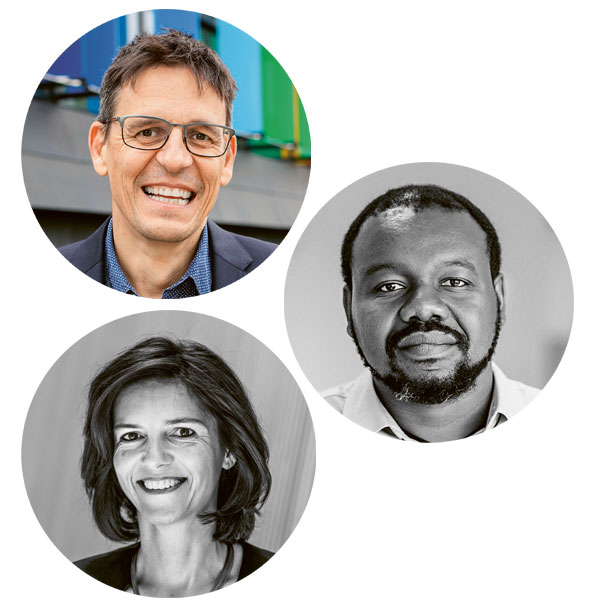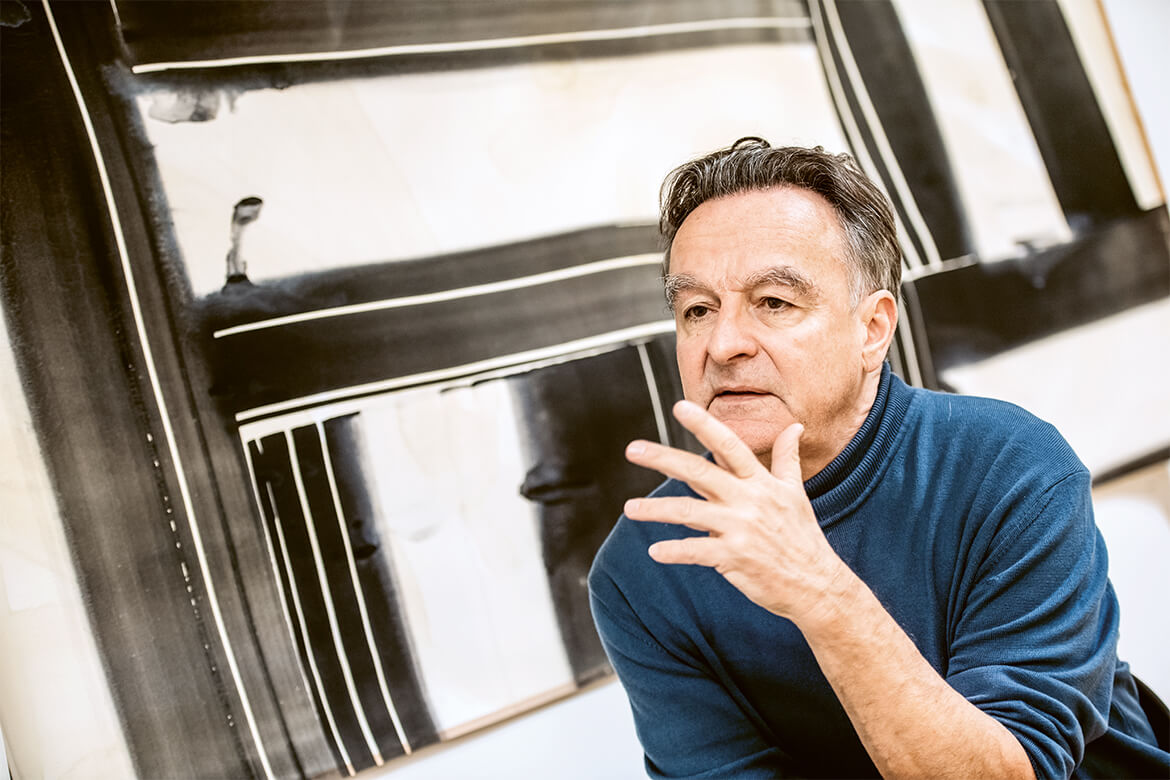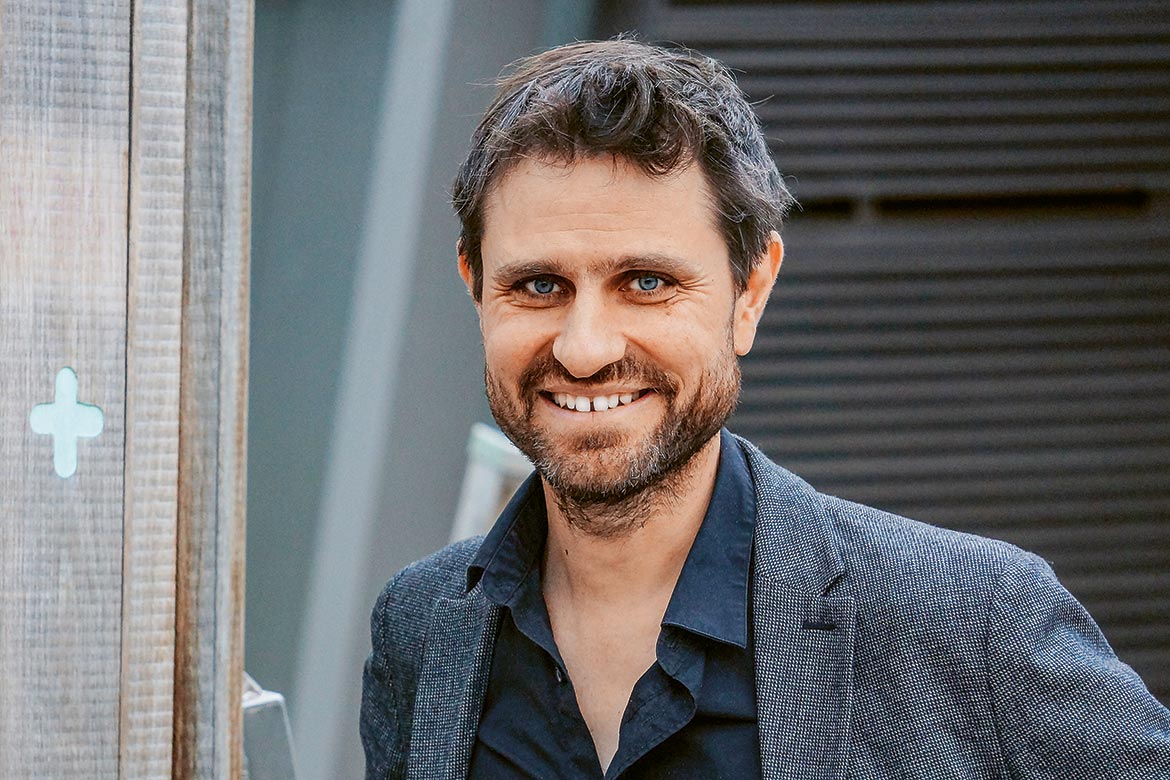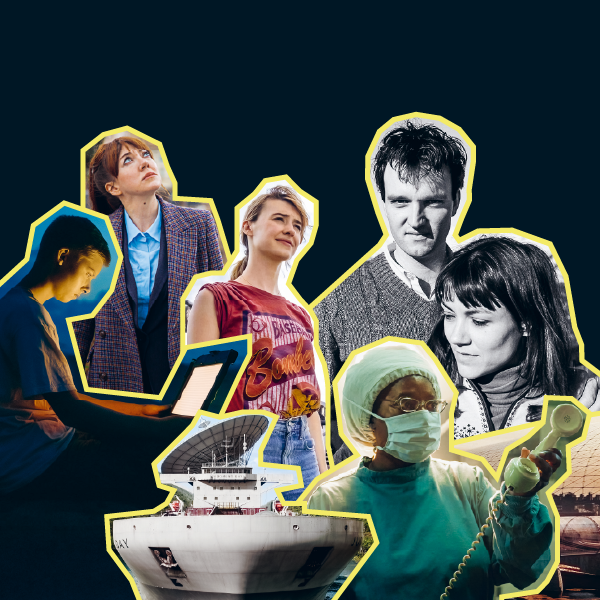The quest for fair research
Western researchers should share more responsibilities with their colleagues from the South.

Medical technology from the West can’t withstand tropical weather, and spare parts are rare. The consequence of unreliable equipment is a lack of trust – which we can clearly see in the face of the patient being X-rayed. The Swiss photographer Sylvain Liechti took these photos in hospitals in Cameroon in 2015 for an exhibition at EPFL about the challenges of medical technology in the Global South. Several projects at EPFL’s EssentialTech Programmes at the Cooperation & Development Center CODEV are involved in making medical equipment for developing countries. The GlobalDiagnostix project, for example, is working on a digital X-ray machine, while GlobalNeonat is developing a suitable incubator.
Research has gone global. Finding solutions to problems in developing nations today also means tackling global issues that have an impact on the West, such as climate change and migration. The success of this research will depend on the ability of northern and southern institutions to work together efficiently. “Research capacity in the South has been strengthened over the past 15 years”, says Gilles Carbonnier of the Graduate Institute of International and Development Studies in Geneva. Countries like Ghana, Indonesia, Peru, South Africa and many others in the Global South have grown richer, while traditional divides are shifting between the developed and the developing, rich and poor. The international research landscape is changing too.
But inequality still exists at many levels: “In research partnerships we sense the same tensions that are typically embedded in donor-recipient relations in international development cooperation: donors tend to seek to impose their ideas and conditions”, says Carbonnier.
The key questions here are: who decides what research projects are to be realised, and who is to benefit from the results? How will those benefits be disseminated, and how can cooperation in a given social system be increased? And finally: who should decide where the money goes?
Deep-seated habits and old, established power relations still play a role in international partnerships, says Carbonnier: “Building fair research partnerships consumes time and resources. There is real pressure to publish research outcomes fast in peer-reviewed – Anglo-Saxon – journals edited in the North. And there is harsh competition for funding”. The existing tensions between the drive to recognise academic excellence and achieving longer-term, capacity-building objectives are at the heart of the North-South research partnership debate. “There is increasing pressure from the partners in the South to engage in fair research partnerships. It is crucial to give greater space to locally produced knowledge and a greater variety of ‘knowledge ecologies’ – and to accept that contextualisation may lead to outcomes that don’t always conform to standard expectations in the north”.
Most research in a north-south context contains policy-relevant components, says Laurent Goetschel of the University of Basel, who is president of the Swiss Commission for Research Partnerships with Developing Countries of the Swiss Academy of Sciences. One of the challenges is to get research partnerships functioning despite divergent socio-political and economic contexts.
He who pays, decides
The first question is crucial: who sets the agenda and decides what research should be done? For many years, the decision has been made mostly by the research funders, says Benjamin Apraku Gyampoh, Programme Manager at the Nairobi-based African Academy of Sciences (AAS). For him, research partnerships have biased donor-recipient relations that plague international development cooperation. “There is the infamously wrong perception that the one with the money has all the wisdom and knows how best to use the money”. One may have the funds and good intentions, but might not understand the context within which the recipient is working, and might not be willing to learn about the recipient’s environment. “Research partners – funders and recipients – must learn from each other about how to develop, retool and facilitate systems”, he adds. In agricultural research cooperation, it should be the farmers who determine the area of research for funding bodies, says Professor Ngozi Ifeoma Odiaka of the University of Agriculture in Makurdi, Nigeria.
In 2015 the AAS established the Alliance for Accelerating Excellence in Science in Africa, which is funded by institutions such as the UK’s Department for International Development, the Wellcome Trust and the Bill and Melinda Gates Foundation. According to Gyampoh, these funders agree on the need to shift the centre of research decisions and funding from Europe and America to Africa.
The person who is responsible to a donor for a project also needs to have decision-making powers, says Goetschel: “Ideally, this would be a joint responsibility of southern and northern researchers towards a joint funding agency, or of each partner towards his/her funding agency”. In practice, however, most of the funding comes from the Global North, so the final decision-making power lies with the Northern partner. Nevertheless, within the governance of a partnership project, rules may and should be developed to assure the Southern partners of the possibility of making joint decisions.
Bringing fairness into research
Another challenge is quantifying the resources invested by recipient organisations whose input goes beyond financing, adds Gympoh. For instance, office space, utilities, salaries and staff benefits are provided to research institutions by African governments, but these are difficult to quantify as research ‘input’. As a consequence, funders can get the impression that their partner is contributing nothing, and this can affect their relationship.
Gyampoh believes it is possible to conduct fair research if it is based on the right kind of relationships and partnerships. Funding bodies and researchers on the spot should not wait until after submitting a proposal before engaging in dialogue, but should begin long before this if fair research is to come about.
Who owns the results?
Who is to take the credit for research outcomes achieved jointly by scientists from the Global North and South? This has been a source of some discontent, with scientists from the South feeling that they are doing all the ‘donkey work’ while the funding and oversight organisations give all the credit to their Northern collaborators. But the benefit to be derived from research results depends on how those involved define it. To the funder it can mean being acknowledged for providing the money, while for the researcher the benefit can come from publishing the results. To the general community, there can be concrete interventions resulting from the research findings, says Gyampoh.
Data obtained from shared research should belong to all the researchers involved, and made accessible to others on open access as soon as possible, says Goetschel. But sharing this knowledge depends on the kind of results obtained: “Certain types of results are very complex and should be available mainly to the research community”, he says.
The Bill and Melinda Gates Foundation is part of the Global Grand Challenges partnership network, which aims to solve some of the most pressing challenges in health and development. “All their grantees and partners must commit to making their research outputs widely available at an affordable price, in sufficient quantity and in a timeframe that provides real and meaningful benefit to those who need it most”, says Ayo Ajayi, the director of the Africa Team leading the Gates Foundation’s work on policy, advocacy and government relations across Africa. “We continually collect and share data on our progress, reflect on lessons learned, and make course corrections as needed, through ongoing dialogue with our grantees and partners”. Published research resulting from their funding is to be promptly and broadly disseminated. They have adopted an open-access policy that enables unrestricted access and re-use of all peer-reviewed, published research that has been funded in whole or in part by the Foundation, including any underlying data sets.
Gyampoh emphasises that research data belongs to everyone. “In fair research, issues of intellectual property must be addressed humanely and with an understanding that what is being done is for the good of all”, he says. “Permission should be granted to anyone who wants to use the data ethically for the benefit of humankind. Of course, there must be an acknowledgement of who and what made it possible for the data to become available”.
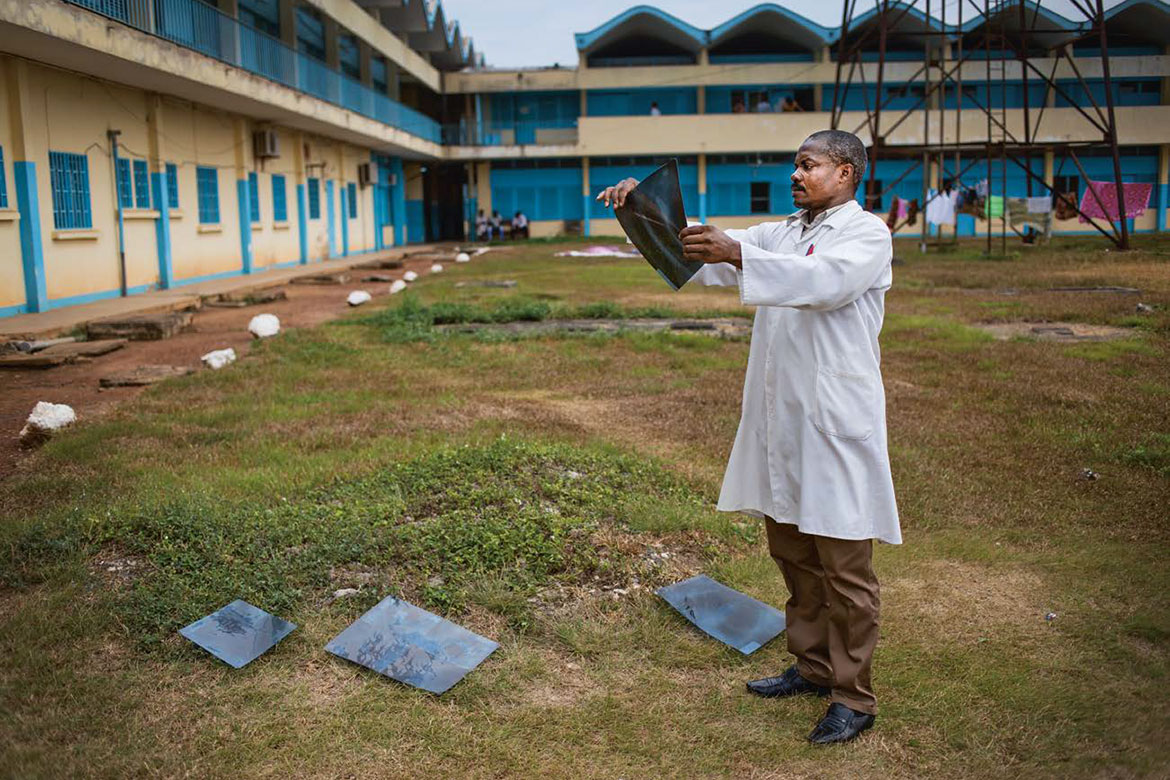
When the weather is fine, Roger lays out the freshly developed X-rays to dry on the lawn. He’s a technician for medical imaging.
Pélagie Lefebvre is the programme officer of the Canada-based International Development Research Centre (IDRC). He says that his organisation does not prescribe precisely how data should be managed, and has seen numerous ways of managing research data in the international collaborations that have been funded. One of the models was a team of researchers who signed an agreement at the onset of the programme, indicating that the country leads would be responsible for collecting the data in their own country, and would be allowed to publish the data that they collected. This ensured that there was no misunderstanding over the ownership of the data. Usually, the IDRC expects that the research conducted will lead to peer-reviewed publications, but it also encourages the researchers it supports to reach out to policymakers and to make their findings accessible to the general public.
At the University of Agriculture in Makurdi, Odiaka notes that in terms of publicity, most research is published in peer-reviewed journals or in conference proceedings, which limits the scope of dissemination to those who have access to them, or to the few who attend conferences. Sharing both publications and research data is now also a matter of discussion.
Equal partners from the start
In order to apply for IDRC grants, researchers from Canada and developing countries need to come together to develop Joint proposals – whether based on existing collaborations or created from scratch, explains Lefebvre. To set up a collaboration on an equal footing, IDRC requires two programme leads: one in Canada and the other in the developing country. Each lead is responsible for his or her own budget, which ensures equality among the lead researchers.
Creating equal partnerships is in the interest of funders and researchers alike. Otherwise, they risk the law courts doing it for them. On 18 July 2014, a landmark ruling by Kenya’s industrial court awarded six Kenyan doctors a total of 30 million Kenyan shillings (USD 341,000) in compensation for careers held back by “institutional racism” in a UK-Kenyan medical research partnership. The doctors, said the court, had faced “systemic discrimination” while working for the Kenya Medical Research Institute – Wellcome Trust Research Programme in Kenya’s Kilifi.
According to the ruling, the six were passed over for promotions and grants while they were working for the programme, which was run in partnership with the University of Oxford.
Their lives were disrupted “in terms of career development, contribution to scientific outcomes to the country and in terms of ability to get alternative employment and academic scholarships”.
The solution for the future might be found in the past. As Gilles Carbonnier and Tiina Kontinen state in their 2014 EADI Policy Paper ‘Academia Meets Development?’: “Past experiences can help new actors to avoid falling into the old bias and traps well-known to those who have been active in this field [North-South cooperation] over the past decades”.
Ochieng’ Ogodo is Sub-Saharan African English Edition Regional Coordinator and News Editor at SciDev.net, a non-profit organisation headquartered in London that publishes news and analysis on science and technology for global development. He is based in Nairobi.

